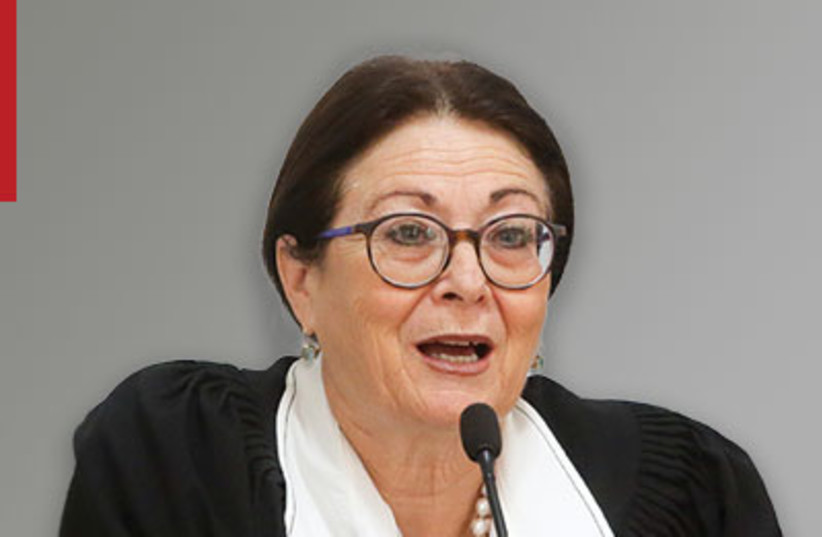Justice Minister Gideon Sa’ar announced on Tuesday that in two weeks he will push for the government to adopt public hearings for nominees to the High Court of Justice with support from Chief Justice Esther Hayut.
The move would be one of the most radical changes to the process of selecting High Court nominees in over a decade.
Although the issue has been weighed by less powerful political officials in the past, Sa’ar has succeeded on a number of major initiatives in recent months where others had failed, and his successfully enlisting Hayut signaled that this time he might very well succeed.
It was unclear what mix of understandings may have brought Hayut to agree to the change, but The Jerusalem Post has learned that many think there is a fundamental difference between Sa’ar’s proposal and earlier proposals.
The judiciary strongly opposed earlier proposals for public hearings in the Knesset and before the cabinet out of concerns about the politicization of the process.

However, Sa’ar’s proposal would keep the hearings before the limited nine-person Judicial Selection Committee, with a majority of its officials not being politicians, and simply televise some or all of the interviews.
It is still an open issue regarding whether aspects of the hearings will remain closed, with only portions being public, in order to facilitate more genuine in-depth answers to questions without concerns about more superficial performance-related issues.
Although there have been a number of issues in play between Sa’ar and Hayut, there was no apparent connection between their deal on this issue and other issues that are still open where the judicial branch has had concerns.
Besides the Sa’ar and Hayut dynamic, the judicial branch has taken a hit in terms of how much support it has from the public.
Opening up hearings to the public could be a way to reduce criticism of insider deals and instances of judges being forced to resign due to various alleged infractions.
Religious Zionist MK and Judicial Selection Committee member Simcha Rothman responded, “any step which increases transparency regarding the Judicial Selection Committee is praiseworthy, but obviously the proposal of the minister is insufficient to address the central problem in appointing High Court justices: the veto of the sitting High Court justices.”
He pressed for the Knesset to have exclusive power over appointing justices, instead of the committee which includes three serving justices and two members of the Israeli Bar Association in addition to four political officials.
Israel Bar Association President Avi Himi likewise praised the goal of increasing transparency but expressed concern that publicizing the hearings could downgrade the level of professionalism and lead to politicization.
He said that the bar association would carefully weigh the pros and cons of the specific proposal once they were given more details and then decide on a position.
Sa’ar said he would seek approval from the Judicial Selection Committee at its next meeting on April 11.
